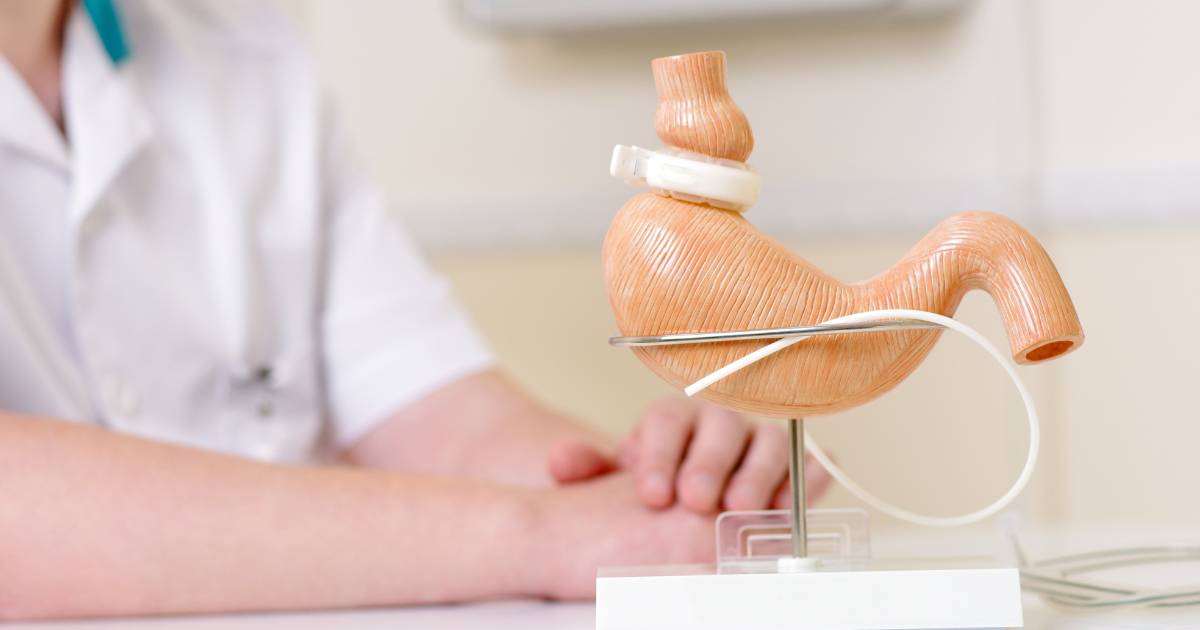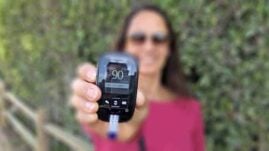Gastric bypass procedures are a kind of surgery often recommended for people who need to lose a significant amount of weight for health reasons.
A doctor may recommend gastric bypass surgery for people with diabetes to help prevent heart disease, lower high blood pressure, assist with weight loss, and in some circumstances, reverse type 2 diabetes.
This article will investigate gastric bypass and other weight-loss surgeries and how these procedures can benefit people living with diabetes.

What is gastric bypass surgery?
Gastric bypass is a common kind of weight-loss surgery, also known as bariatric surgery. A gastric bypass procedure involves restructuring the stomach and small intestines so that food passes through the digestive system differently.
The surgery causes food to “bypass” the stomach and instead go to the intestines.
There are several effects of this redirection in food and restructuring of the digestive system.
First, because the larger stomach is not used as a first stop for food, most people find that they feel full faster after a gastric bypass procedure. This means a person cannot eat as much food after the procedure, and most people report feeling full for longer after a meal.
Second, because eaten food also bypasses a portion of the digestive system that absorbs nutrients, fewer calories are absorbed, which further helps in the weight loss process.
This also means that fewer micro-nutrients are absorbed, so people who undergo gastric bypass surgeries are generally prescribed a regimen of daily vitamins to supplement what is no longer absorbed through diet alone.
The most common kind of gastric bypass surgery is the Roux-en-Y procedure (named after the surgeon who invented it, César Roux), and the way the stomach and small intestine are connected into a new “Y” shape.
According to the University of California, Los Angeles School of Medicine, gastric bypass surgeries have good short-term and long-term weight loss outcomes.
In the short-term, most patients can expect to lose 60% – 80% of their excess weight. Looking to the longer term, most patients keep off at least half of the excess weight.
Gastric bypass surgeries also are generally effective at helping people to avoid complications associated with being overweight or obese for a sustained period of time.
These procedures are not for everyone. Gastric bypass is usually only recommended by a doctor if a person’s body mass index (BMI) is 40 or higher, or if they have a BMI over 35 occurring at the same time as certain serious weight-related diagnoses.
Can a person with diabetes have gastric bypass surgery?
Yes, people with diabetes can have gastric bypass surgery when it’s recommended by a doctor or other medical provider.
Generally speaking, gastric bypass surgery is only recommended for adults with type 2 diabetes when they have a BMI over 35, and when weight can’t be controlled through diet, exercise, and medication alone.
There are also some cases when gastric bypass surgery can be recommended even if a person’s weight or BMI alone wouldn’t normally meet the typical medical standard. These can include if a person’s blood sugars (as measured by HbA1c) are significantly out of range and are difficult or impossible to control through medication, diet, and exercise.
If a person is having major complications from type 2 diabetes and a medical professional assesses that significant weight loss is necessary, gastric bypass may also be the preferred medical intervention.
According to the American Academy of Pediatrics, there are also some limited circumstances when teenagers over the age of 13 with clinical obesity and conditions like type 2 diabetes may benefit from weight loss surgeries like gastric bypass.
How does gastric bypass surgery affect diabetes?
The main purpose of gastric bypass surgery is to help people lose weight and avoid complications that come about from prolonged periods of being overweight or obese.
Clinical studies have long established that as body fat and BMI increase, insulin resistance also increases.
Because gastric bypass surgeries help most people to rapidly lose weight, the insulin resistance that is the hallmark of type 2 diabetes is generally improved by the procedure.
Furthermore, according to research published in the Journal of Clinical Endocrinology & Metabolism, nearly 60% of adults with type 2 diabetes who underwent a gastric bypass procedure experienced long-term remission.
After gastric bypass and weight loss, fewer people needed to take long-acting or mealtime insulin, and roughly half of the people who previously had type 2 diabetes will achieve normal, “non-diabetic” blood sugars as measured by an A1c.
While full weight loss from the procedure can take 12 – 24 months, the impacts on blood sugars can be much quicker.
A significant proportion of people with type 2 diabetes will experience near-normal blood sugar levels within days after a gastric bypass procedure, although this is likely partially because of the calorie-restricted diet required during the post-operative recovery period.
What are the risks of bariatric surgery for diabetes?
While gastric bypass itself is one of the safest surgeries and has good potential to help people lose weight, all bariatric surgeries do come with some risks.
Some of the potential complications of weight-loss surgeries include:
- Prolonged nausea and vomiting
- Acid reflux (heartburn) and gastroesophageal reflux disease (GERD)
- Post-surgical infections
- Malnutrition
- Obstruction of the stomach or intestines
- Inability to eat certain foods
There are other changes people with diabetes in particular should be aware of if they undergo gastric bypass surgery.
One complication to be aware of is an increased risk of hypoglycemia or low blood sugar.
Because the stomach is functionally smaller after gastric bypass, people who are taking insulin should be cautious around low blood sugars. When experiencing low blood sugar after the procedure, some people with diabetes have reported it is more difficult to consume enough carbs/sugar to quickly bring blood sugar back up to a normal level.
Because gastric bypass and other bariatric procedures can also cause nausea and vomiting, it’s important for people who use insulin to be aware of their blood sugar levels and avoid dosing too much in case it’s difficult to finish a meal or keep food down.
This is especially important soon after the procedure while getting used to how much food it takes to feel full and how the body reacts to eating.
A very small proportion of people also experience repeated, serious low blood sugars as a side effect of gastric bypass surgery.
For most people for who a doctor recommends gastric bypass, the risks of complications are relatively small compared to the risks of being significantly overweight for a long period of time.
Before undergoing gastric bypass surgery, it’s important to talk with your doctor and medical care team about how to manage your diabetes before and after the procedure, and if there are specific changes to medication, diet, or exercise that will be needed to make the procedure successful and reduce the risk of complications.
What is the best weight-loss surgery for diabetes?
There are many different kinds of weight-loss surgeries. In the United States and Europe, the three most common kinds of weight-loss surgery are gastric bypass, adjustable gastric banding (also called a “lap-band”), and sleeve gastrectomy procedures.
There are benefits and drawbacks to each type of surgery, and a doctor may recommend one over another for a range of clinical reasons.
Clinical trials have consistently found gastric bypass to be safe, well-tolerated, and effective at helping people with type 2 diabetes to lose excess weight and avoid complications.
For this reason, gastric bypass surgery is the most common bariatric procedure recommended for people with type 2 diabetes.
Recent research has also indicated that another, less-common surgical procedure, known as biliopancreatic diversion, could be even more effective for some people with diabetes. This is because the biliopancreatic diversion procedure helps people become more insulin sensitive than other weight-loss surgeries.
However, gastric bypass surgery has fewer potential complications, has a long history, and has a good safety profile. Because of this, most medical professionals will recommend gastric bypass for people with diabetes who need surgery to help them lose weight and improve control of their diabetes.
Your doctor or medical provider can discuss all the surgical and non-surgical options available and will be able to explain why they advise a specific course of action.
Frequently asked questions
There are four major kinds of gastric bypass surgery. Gastric bypass, Roux-en-Y (RYGB, proximal) is the most common. There are also Roux-en-Y distal procedures, plus the mini gastric bypass and the endoscopic duodenal-jejunal bypass, which are still being evaluated through clinical trials.
Almost 60% of adults with type 2 diabetes who underwent gastric bypass surgery experienced long-term remission of their diabetes.
Metformin may still be prescribed after a gastric bypass, but studies have shown that its absorption and effectiveness may be altered, so it is likely that your doctor will adjust your dosage.



